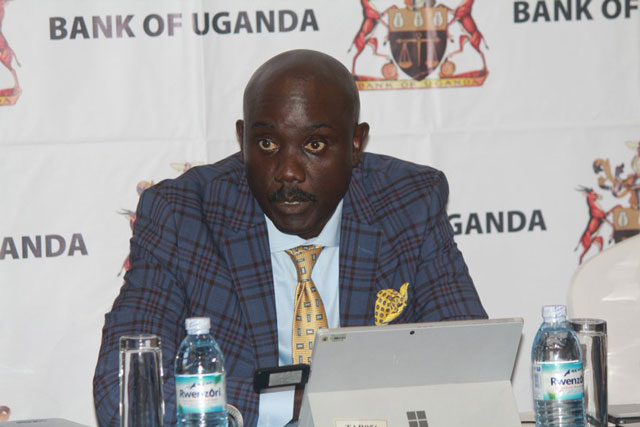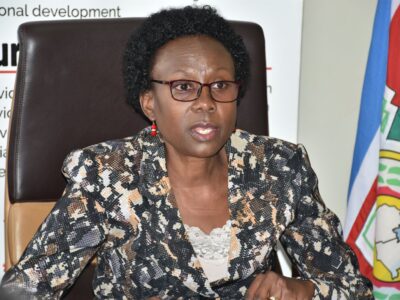The Attorney General has asked the High Court in Kampala to dismiss a case challenging the appointment of Bank of Uganda’s Executive Director for Supervision Dr Twinemanzi Tumubweine.
The state wants the case filed by activist Arnold Anthony Mukose dismissed on grounds that it is an abuse of the court process as it should have been filed at least within three months after Twinemanzi’s appointment.
Twinemanzi was appointed Director Supervision on February 7, 2018, by the Bank of Uganda Governor Emmanuel Tumusiime Mutebile and the appointment was later confirmed in August 2020, by the Board.
However, Mukose petitioned the court saying that there was no internal and external advertisement of the job, no request by the executive director administration to the governor to recruit an executive director in charge of supervision through headhunting and that other issues were never considered.
Mukose also accused Twinemanzi of not being fit to be in that position due to a lack of experience in commercial banking because he has never worked in any commercial bank, which is one of the key requirements for the said job.
He asked the court to declare that the appointment of Twinemanzi who reportedly graduated in 1996 at Makerere University with a pass degree of Bachelors of Science in Statistics and Applied Economics to have been irregular. But in response to the case, the government through the Principal State Attorney Oburu Jimmy Odoi wants the case dismissed.
According to Odoi in his affidavit seen by URN, unless the court considers that there is a good reason for extending the period within which the application shall be made, one cannot file such after three months after a decision has been taken.
Oburu adds that the Governor of the Bank of Uganda’s decision to source, appoint and transfer staff in the central bank was done under the Bank of Uganda Act and the internal recruitment policies of the bank.
He contends that on August 17, 2020, the Bank of Uganda sought legal opinion on two aspects, namely; the implications of the delay in the confirmations of the staff recruited on February 7, 2018, considering that the staff who included Twinemanzi and others had been working normally in the bank for over two years.
The second aspect was on the implications of the decision of the Bank of Uganda Board to bar staff recruited or promoted in February 2018 from competing for internally advertised positions in the Bank. However, the evidence before the court indicates that in response, Deputy Attorney General Jackson Kafuuzi Karugaba advised the bank that the resolution of the board delegated to the governor was specifically to enable the bank to operate well in the absence of a fully constituted board.
Kafuuzi adds that the board reportedly retained its authority to ratify any such acts or approvals. Further, the Deputy Attorney General wrote saying that therefore the Governor cannot be said to have usurped functions of the board under section 28 of the Bank of Uganda Act.
The court records also show that the Deputy Attorney General advised that the said employees ought to have been granted equal opportunity to compete for any internally advertised jobs. Also that any attempt to bar them would amount to discrimination in as far as the Employment Act of 2006 is concerned.
According to Kafuuzi, it would have exposed the bank to complaints before the Equal Opportunities Commission or Labour Office or Industrial Court. The government now says that the Bank of Uganda Governor did the right thing and therefore Mukose’s application is an abuse of court process, is time-barred and absurd and therefore in the interest of justice, it should be dismissed.
In 2019, a tripartite committee headed by the Bugweri County MP Abdu Katuntu to investigate the issues surrounding new appointments and changes at the Bank of Uganda found that; the Governor unethically recruited new staff in a massive staff restructuring process that took place on February 7, 2018.
The investigations also revealed that those recruited did not meet the minimum academic qualifications. For Tumubweine’s part, the report indicated that although he has a PhD in Economics, he had stated that his first degree was a first-class degree yet he obtained a pass degree which is much far below the required minimum qualification for the position of Executive Director in charge of bank supervision.
The report also showed that Tumubweine lacked working experience in commercial banking. The case is currently before Judge Phillip Odoki and it will be heard on June 1, 2021.
****
URN












